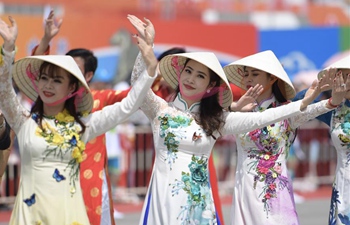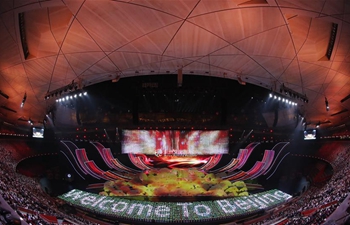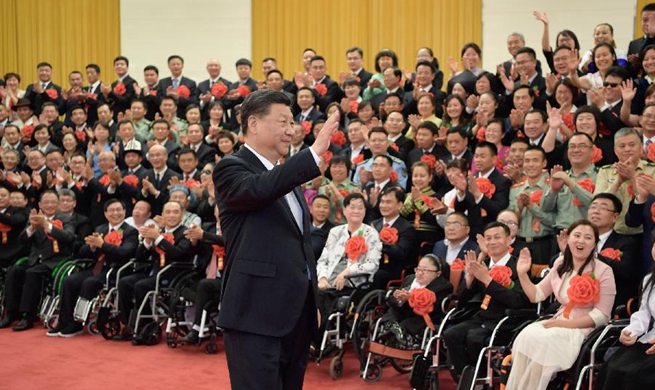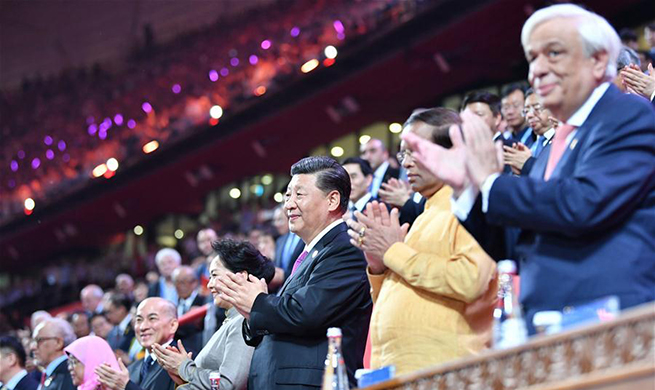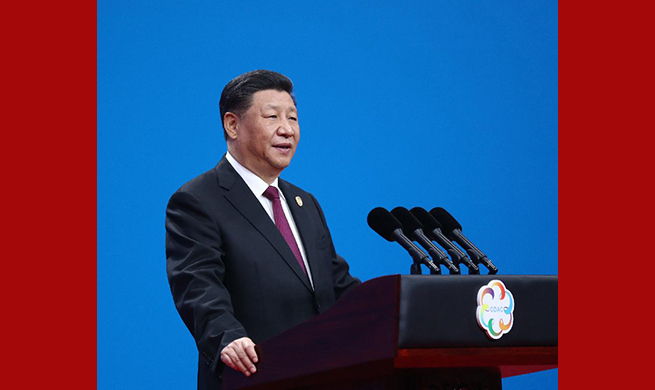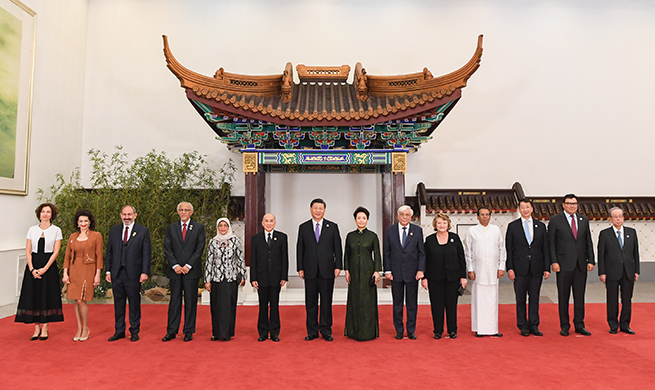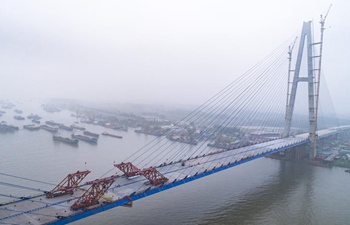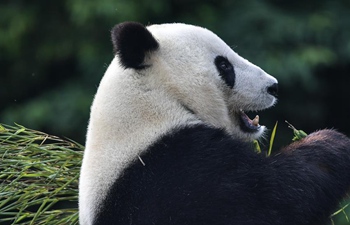MOSCOW, May 17 (Xinhua) -- Chinese and Russian senior diplomats on Friday agreed to work together to uphold multilateralism and safeguard the international arms control system so as to strengthen global strategic stability.
The two sides led by China's Assistant Minister of Foreign Affairs Zhang Jun and Russian Deputy Foreign Minister Sergei Ryabkov held a new round of China-Russia consultation on strategic stability and reached consensuses on a wide range of issues concerning strategic security and cooperation in this field.
Zhang warned that regardless of increasing uncertainties in international strategic security, certain major countries continue to flare up tensions and the risk of arms race by pursuing unilateralism and bullying, constantly withdrawing from international treaties and mechanisms as well as boosting nuclear capabilities, which is seriously damaging global strategic stability.
He noted that China and Russia, as permanent members of the UN Security Council, play a pivotal role in maintaining international strategic security.
Beijing is willing to strengthen cooperation and deepen strategic mutual trust with Moscow, as the two sides work together to uphold multilateralism, curb the tendencies of unilateralism and safeguard the international arms control treaties and mechanisms, Zhang said.
In response to Washington's claim to include China to the U.S.-Russia arms control agreement, Zhang reiterated the firm attitude of the Chinese side that the preconditions and basis for trilateral arms control negotiations never exist, and China will by no means participate in such negotiations.
Firmly adhering to the path of peaceful development, China has clearly stated that it will not use nuclear weapons first or against states without such weapons, and that it will not participate in any form of nuclear arms race or deploy nuclear weapons in other countries, Zhang said.
Therefore, the U.S. accusation against China's legitimate defense construction is groundless, Zhang said, calling on Washington not to use other countries as an excuse to evade its international responsibility.
For his part, Ryabkov also noted severe global challenges such as unilateralism and the constant deterioration of the situation around strategic stability.
To maintain global strategic balance and stability, Russia and China should further promote strategic cooperation and mutual trust, uphold multilateralism, as well as safeguard the international arms control treaty and the non-proliferation system of weapons of mass destruction, he said.
The diplomat stressed that Moscow fully understands Beijing's position on the issue of China-Russia-U.S. trilateral arms control negotiation, saying that the United States should continue to fulfill its international obligations.




